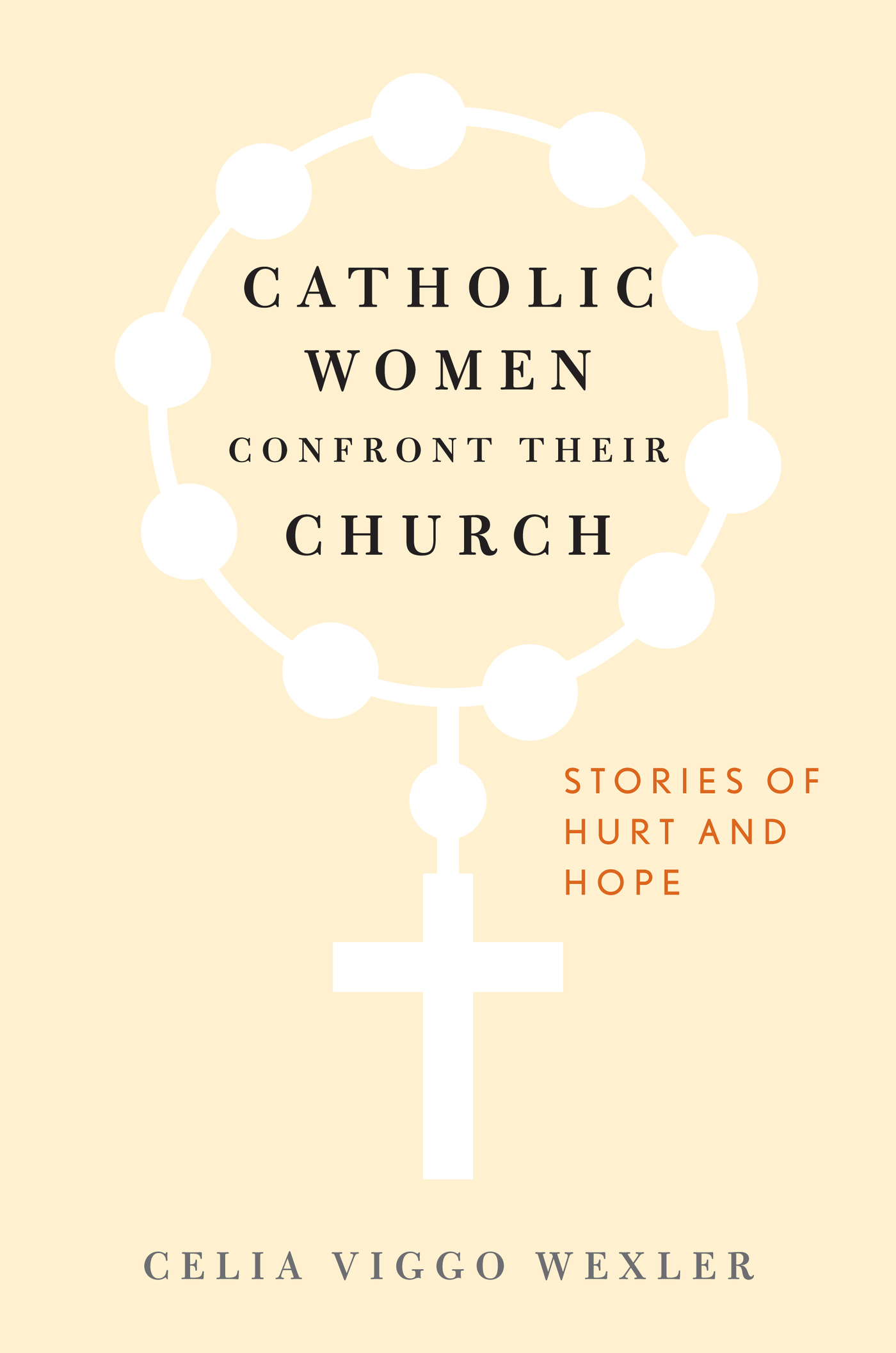Praise for
Catholic Women Confront Their Church
The courageous Catholic women profiled in this timely book have issued a clear call for the transformation of the institutional church. Their faith is profound; their voices are strong. Their message has the power to change hearts, minds, and hierarchies.
Joan Connell, former editor of Religion News Service
In Celia Wexlers meticulously assembled inquiry into the state of mind of contemporary Catholic women, we hear from ten different subjects, each as riveting and articulate as the next, calling for compassionate and heartfelt change. The result is a stunning choral effect, worthy of being heard in the sacristy and in the streets, by men and women alike. Wexlers prose reads with the clarity and conviction of a beautiful prayer.
Madeleine Blais, Pulitzer Prizewinning journalist, University of Massachusetts Amherst
For most of modern history, Americans have been religious outlierswere the rare society thats both prosperous and devout. In recent decades, however, a growing number of Americans, especially the young, have drifted away from organized religion. This is a complex phenomenon with multiple roots. Celia Wexler has summoned her impressive journalistic skills to tell one aspect of this story with great insight, empathy, and humanity.
Paul Taylor, Pew Research Center, author of The Next America: Boomers, Millennials and the Looming Generational Showdown
Catholic Women Confront Their Church
Stories of Hurt and Hope
Celia Viggo Wexler
ROWMAN & LITTLEFIELD
Lanham Boulder New York London
Published by Rowman & Littlefield
A wholly owned subsidiary of
The Rowman & Littlefield Publishing Group, Inc.
4501 Forbes Boulevard, Suite 200, Lanham, Maryland 20706
www.rowman.com
Unit A, Whitacre Mews, 26-34 Stannary Street, London SE11 4AB,
United Kingdom
Copyright 2016 by Rowman & Littlefield
All rights reserved. No part of this book may be reproduced in any form or by any electronic or mechanical means, including information storage and retrieval systems, without written permission from the publisher, except by a reviewer who may quote passages in a review.
British Library Cataloguing in Publication Information Available
Library of Congress Cataloging-in-Publication Data
Names: Wexler, Celia Viggo, 1948 author.
Title: Catholic women confront their church : stories of hurt and hope / Celia Viggo Wexler.
Description: Lanham : Rowman & Littlefield, 2016. | Includes bibliographical references and index.
Identifiers: LCCN 2016005014 (print) | LCCN 2016020403 (ebook) | ISBN 9781442254138 (cloth : alk. paper) | ISBN 9781442254145 (electronic)
Subjects: LCSH: Women in the Catholic Church.
Classification: LCC BX2347.8.W6 W49 2016 (print) | LCC BX2347.8.W6 (ebook) | DDC 282.082dc23
LC record available at http://lccn.loc.gov/2016005014
 TM The paper used in this publication meets the minimum requirements of American National Standard for Information Sciences Permanence of Paper for Printed Library Materials, ANSI/NISO Z39.48-1992.
TM The paper used in this publication meets the minimum requirements of American National Standard for Information Sciences Permanence of Paper for Printed Library Materials, ANSI/NISO Z39.48-1992.
Printed in the United States of America
Acknowledgments
This book began in earnest after I participated in a memoir workshop at the Key West Writers Workshop Program in January 2014. I submitted my first chapter, terrified of what my colleagues would think. I received a very positive critique and enough encouragement to move on with this book. My teacher, Madeleine Blais, and my fellow students helped to launch me.
My agent, Kathi Paton, believed in the book and found a good home for it. She encouraged me over many months of writing and rewriting and helped me shape an effective book proposal. Sarah Stanton, my editor at Rowman & Littlefield, offered patient and constructive criticism that I deeply appreciated.
My boss, Andrew Rosenberg, director of the Center for Science and Democracy at the Union of Concerned Scientists, where I worked as a public-interest lobbyist until April 2016, permitted me to work part time for ten months in 2014 and to take book leave in August 2015. That time was invaluable.
The nine women you will meet in this book were incredibly generous with their time and insights. They were willing to share their deepest thoughts about their faith, and their own life stories. I hope that this book captures some of their depth, intelligence, courage, and idealism. My dream is that someday all of my subjects will get to meet one another at a dinner party. I am sure we would find a lot to talk about!
This book was difficult to write because it touches a facet of my own lifemy Catholic faiththat I have struggled with for many, many years. My wonderful spouse, Richard Wexler, is a Jewish atheist. Yet whenever I was tempted to quit writing, he bucked me up and supported me. He believed in meand in this book. We met when we were journalists, and he is a very good editor. His incisive critiques of each chapter improved this book. He has been patient, when Ive been absent every Saturday for more than a year, writing away. Hes also put up with my grumpiness. My daughter, Valerie, has become an extremely keen and sharp-eyed editor, whose careful research and final reviews of chapters always led to better writing.
Valerie is the real reason for this book. I wrote this book for all our daughters. They need to understand our struggles with Catholicism and why they matter.
Chapter 1
Introduction
Catholic Women Confront Their Church
There is a reason that I called this book Catholic Women Confront Their Church and not Catholic Women Confront Their Faith. To me, faith embodies both a personal experience of God, and an adherence to principles guided by that experience, which inform my life. Church is very different: It is the institution that in theory is supposed to help me develop and participate in my faith. But often the institutional church has been a barrier to that faith.
The problems that have dogged the churchs approach to women are both centuries old and persistent. As Catholic historian Margaret Harvey observed, Women have no effective role in church government, cannot be priests, rarely study theology, and are limited in what they can do when they have. Those who control church government are men, and, what is more, men who cannot marry and who are seldom intimate with women. Harvey wrote that in 1976. While other institutions and churches have made dramatic progress on womens rights since the 1970s, the Catholic Church has not.
I began this book in late 2012, just months before Pope Benedict XVI broke a six-hundred-year tradition and stepped down from his office. One Vatican expert termed the resignation the only great reform of Benedict.
The sunny and tolerant Pope Francis has shaken up the church and displayed a more tolerant tone when discussing sexual ethics. Pope Francis has spoken about the need for equality between men and women and calls for a new theology of women. He has advised women religious that if theyre looking for a good spiritual director, they should look to wise women in their own communities.
But he has closed the door on any reconsideration of the ordination of women to the priesthood. And he can wax poetic about women in ways that can irritate feminists. The qualities of delicacy, peculiar sensitivity, and tenderness... are abundant in the female soul, the pope said in 2015, suiting them for an irreplaceable role in family life. That role should be central, he said, even if they aspire to do other things.
Next page
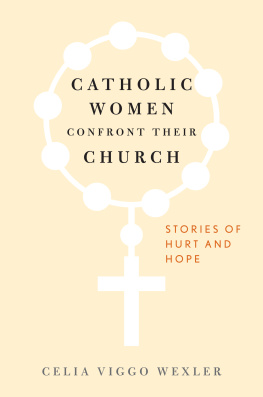

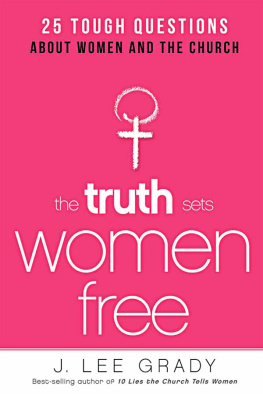
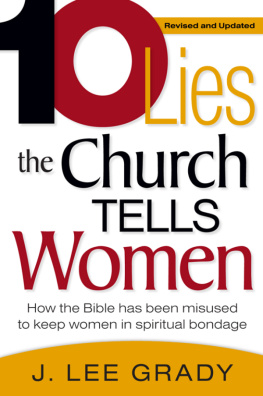
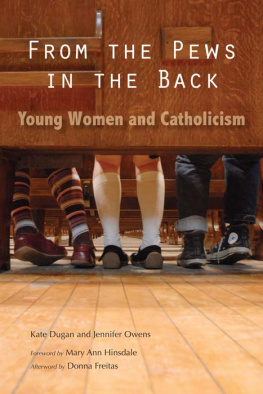
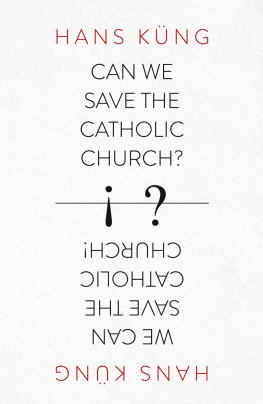
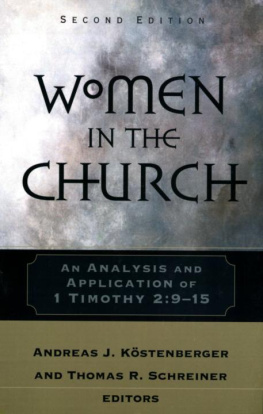
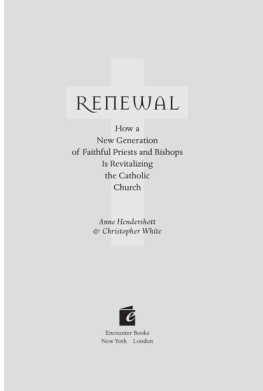
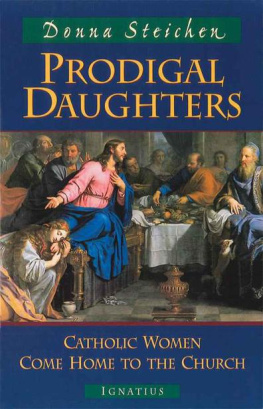
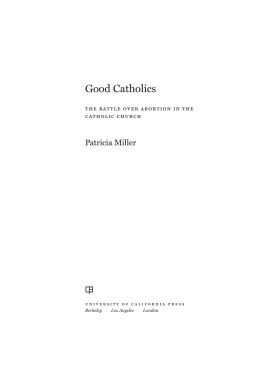
 TM The paper used in this publication meets the minimum requirements of American National Standard for Information Sciences Permanence of Paper for Printed Library Materials, ANSI/NISO Z39.48-1992.
TM The paper used in this publication meets the minimum requirements of American National Standard for Information Sciences Permanence of Paper for Printed Library Materials, ANSI/NISO Z39.48-1992.